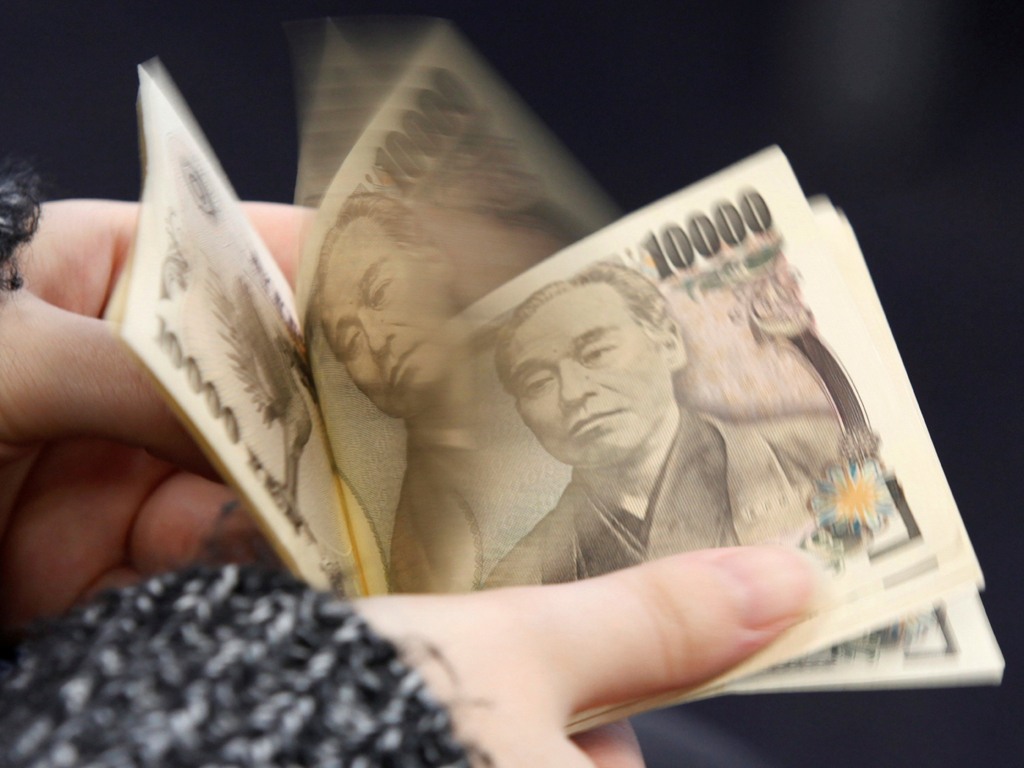Yen hits 9-month low in Europe

The Japanese yen was the biggest mover in the G10 group of currencies on Wednesday, hitting a 9-month low as a slowdown in the number of new reported cases of coronavirus and expectations for further policy stimulus boosted risk sentiment in global markets.
China posted the lowest daily rise in new coronavirus cases since January 29, helping to lift the off-shore traded yuan to a two-week high against the dollar.
Many view Chinese data on the virus with scepticism, but sentiment was lifted by a Bloomberg report that Beijing was considering cash injections or mergers to bail out airlines hit by the virus.
Those steps would come after this week's cut in the medium-term lending rate, which has fed expectations for a reduction in the benchmark loan prime rate.
"Generally a 'risk on' day after China announced it was considering more stimulus measures to support the economy, such as exempting small- and medium-sized enterprises from paying pension contributions until June," said Marshall Gittler, head of investment research at BS Swiss.
"Asian markets are up almost across the board. Hence Australian dollar higher, Japanese yen and Swiss franc lower," he said.
The yen tends to benefit in times of crisis or heightened market uncertainty. It initially gained as news of the outbreak first hit global markets, but has now retraced that move as the pace of the reported increases in virus cases slows.
The yen was half a percent lower versus the dollar by midday in London at 110.42, having earlier hit 110.45, its lowest since May 2019.
Elsewhere, the euro bounced briefly above $1.08 but sank below the mark to trade flat as the dollar continued its rally. The single currency had earlier fallen to a three-year low after a survey showed weakening confidence in Germany. One-month euro-dollar implied volatility rose to its highest in six weeks.
The euro has fallen 3.6% against the dollar this year, as Europe's economic data has deteriorated while that of the United States has mostly improved. On Tuesday, Germany's ZEW research institute said in its monthly survey that investors' mood had deteriorated far more than expected in February, on worries coronavirus would curtail world trade.
The dollar index, which measures the US currency against a basket of its peers, was 0.12% higher at 99.558.
Investors are looking to the minutes from the Federal Reserve's January meeting, due at 1900 GMT, for insight into the Fed's thinking about virus risks. The Australian dollar, which rose during the Asian trading session, gave up gains to trade flat at $0.6689. New Zealand's dollar also gained 0.2%.
The antipodean currencies, heavily exposed to China, have lost more than 4.5% against the dollar this year. Norway's krone, sensitive to global growth via oil exports, has shed 6%, and it slumped to an 18-year low overnight. China's yuan touched a two-week low after the central bank fixed a softer-than-expected trading band, and as investors expected further monetary easing. "It's a tug of war between wait-and-worry and being relieved that the infection rate is slowing down," said Bank of Singapore currency strategist Moh Siong Sim. "The specific moves this morning are related to more policy help from China ... there's some relief that more help is on the way and that is restoring some positivity to the market."





















Comments
Comments are closed.